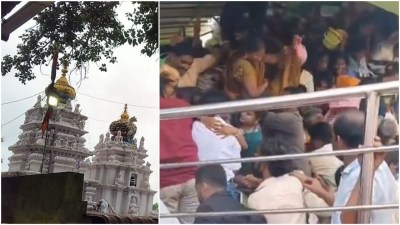The immunisation drive, planned in three phases over three years, is likely to start from the second quarter of this year, The Indian Express has learnt. According to sources, the campaign will begin once the government has a stock of 6.5-7 crore doses of the vaccine needed for the first phase.

Besides cervical cancer, the vaccine also offers protection against the HPV strains that cause cancer of the anus, vagina and oropharynx. Additionally, it also protects against the HPV strains that are responsible for genital warts.
Story continues below this ad
Currently, the two-dose HPV vaccine is available commercially for about Rs 2,000 per dose. But once the government includes it in its immunisation programme, it will be available for free.
“A third of the children (girls) between the ages of 9 to 14 years will be immunised each year over three years. During these three years, the new cohort of children who turn nine in states where the catch-up has happened will also receive the vaccine,” said a senior official, adding that the government is in the process of selecting the states where the campaign will first be rolled out.
ExplainedOne-fifth of global burden
INDIA ACCOUNTS for about a fifth of the world's cervical cancer cases. With about 1.25 lakh new cases and 75,000 deaths each year, cervical cancer is the second most common cancer among women in India, after breast cancer. About 83 per cent of invasive cervical cancer cases are attributed to HPV 16 or 18 in India.
The official explained that nearly 8 crore children between the ages of 9 and 14 years will be eligible for the vaccine across the country. When divided over three years, there will be at least 2.6 crore children eligible during the first year.
In addition to these 2.6 crore children, another 50 lakh to 1 crore children who will turn nine in the places where the campaign has already been rolled out will need the vaccine doses during the second and third year.
Story continues below this ad
The immunisation drive will be conducted through schools and existing vaccination points.
India accounts for about a fifth of the global burden for cervical cancer, recording about 1.25 lakh cases and about 75,000 deaths each year.
Persistent infections with certain high-risk HPV strains lead to nearly 85 per cent of all cervical cancers. At least 14 HPV types have been identified as oncogenic (potential to cause cancer). Among these, HPV types 16 and 18, considered to be the most oncogenic, have been found to be responsible for about 70 per cent of all cervical cancer cases globally.
While Cervavac, an indigenously developed quadrivalent vaccine by the Serum Institute of India (SII) in Pune, is already available commercially, the company is in the process of scaling up its manufacturing to meet government requirements. Cervavac offers protection against four HPV strains – 16, 18, 6 and 11.
Story continues below this ad
“At present, SII has a production capacity of about 2-3 million doses of Cervavac per year. However, we intend to increase this capacity, with a target of 60-70 million doses,” said an SII spokesperson.
“There has been a lot of learning from Covid-19. There is work going on to have a communication strategy in place and ensure any myths circulating online are promptly busted,” the spokesperson said.
Meanwhile, the National Technical Advisory Group on Immunisation (NTAGI) has recommended that the Indian Council of Medical Research (ICMR) conduct trials on the efficacy of a single-dose regimen of HPV vaccine in the age group of 9-15 years.
While none of the HPV vaccines available globally recommend a single-dose schedule, the World Health Organisation says that a single-dose regimen can be followed for public health programmes.
Story continues below this ad
According to the minutes of a meeting held last year, the ICMR said a Phase-3 single-dose trial to test efficacy would take a long time. A Phase-3 trial would mean waiting for several years to observe a certain number of cancer cases in the group that hasn’t been administered the vaccine. Instead, the ICMR study will look at antibody persistence after one dose of the vaccine.









